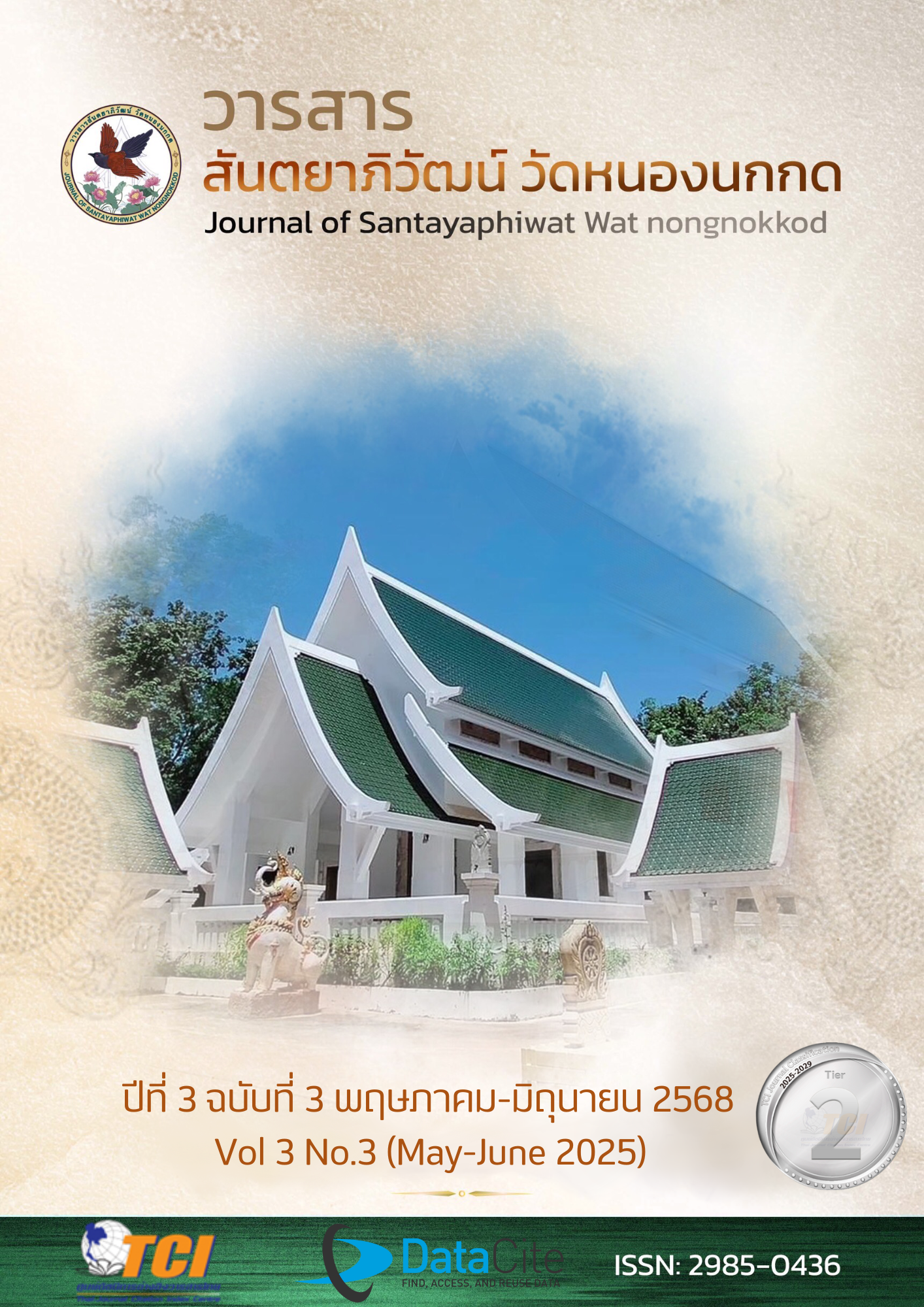MAHATMA GANDHI: LEADER OF THE NONVIOLENT POLITICAL MOVEMENT FOR HUMAN RIGHTS IN INDIA
Keywords:
Mahatma Gandhi, Leader, Political Movement, Rights, PeaceAbstract
This academic article, the author will present the knowledge of the leader of the political movement to demand rights through peaceful means in India of Mahatma Gandhi. The knowledge from this article found that Mahatma Gandhi was an important leader in demanding and fighting for independence from England until it was successful. He was a leader of the political movement to demand rights through peaceful means without violence, including: 1) Love and have mercy on those who hate us as Mahatma Gandhi said that following the law of love is not easy. But doing good deeds and beauty is all difficult. Loving those who hate us is the most difficult thing. Ashna must start in the heart. Our heart must not be filled with hatred. Make our hearts have love and mercy for both those we love and those who hate us. 2) The use of non-violence must be learned and practiced. In order to be a person who sacrifices the most, so as not to be afraid, not afraid of losing whether it is an organ, property or even life. Those who follow the principles of non-violence cannot be afraid or cowardly. Following the principles of non-violence must have fearlessness as the most important foundation. 3) Satyagraha struggle The fighter must not use force against the opponent. Do not harm or destroy the life of the opponent. The fighters must have patience and empathy for the opposing side. Mahatma Gandhi is considered to be the key figure in making India a united country, making India independent and democratic until today.
References
คมสัน สุขมาก. (2559). พันธกรณีตามกฎหมายระหว่างประเทศด้านสิทธิมนุษยชน. วารสารวิชาการศรีปทุม ชลบุรี, 12(3), 1-11.
ชลัท ประเทืองรัตนา. (2557). สันติวิธี? : กํานันสไตล์์. การประชุมวิชาการรัฐประศาสนศาสตร์ระดับชาติ ครั้งที่ 2. ณ จุฬาลงกรณ์มหาวิทยาลัย.
ปัทมาวดี ประพันธ์กุล และ ประทีป พืชทองหลาง. (2563). คานธีความรู้ฉบับพกพา : GANDHI. วารสารสันติศึกษาปริทรรศน์ มจร, 8(3), 1222-1229.
พระณัฐวุฒิ พันทะลี. (2565). ภาวะผู้นำขององค์กรปกครองส่วนท้องถิ่นในยุคดิจิทัล. วารสารการจัดการและพัฒนาท้องถิ่น มหาวิทยาลัยราชภัฏพิบูลสงคราม, 2(2), 74-86.
พระมหายุทธพิชาญ โยธสาสโนและคณะ. (2566). ผู้นำและภาวะผู้นำที่พึงประสงค์. วารสารวนัมฎองแหรกพุทธศาสตร์ปริทรรศน์, 10(1), 153-168.
พระมหาสุรชัย ชยาภิวฑฺฒโน. (2563). แนวทางการแก้ไขปัญหาปรัชญาการเมืองของมหาตมะ คานธี. วารสารวิชาการวิทยาลัยบริหารศาสตร์, 3(3), 120-142.
พระเสกสรรค์ ไชยชาติและคณะ. (2565). มหาตมะ คานธี : การเคลื่อนไหวเรียกร้องต่อสู้แบบสัตยาเคราะห์. วารสารวิทยาลัยสงฆ์นครลำปาง, 11(2), 166-180.
มหาตมะ คานธี, เขียน. กรุณา กุศลาสัย, แปล. (2562). ข้าพเจ้าทดลองความจริง : อัตชีวประวัติของมหาตมะ คานธี. พิมพ์ครั้งที่ 8. กรุงเทพมหานคร : สถานทูตอินเดีย.
ศุภวิชญ์ แก้วคูนอก. (2562). 150 ปี มหาตมะ คานธี : อุดมการณ์ ข้อครหา และลูกหลานในปัจจุบัน. เรียกใช้เมื่อ 23 มีนาคม 2568. จาก https://www.the101.world/150-years-of-mahatma-gandhi/
ศุภวิชญ์ แก้วคูนอก. (2563). สัตยาเคราะห์แบบคานธี : การชุมนุมด้วยความรักและการดื้อแพ่งต่อความอยุติธรรม. เรียกใช้เมื่อ 23 มีนาคม 2568. จาก https://www.the101.world/gandhi-satyagraha/
Gandhi, Mohandas Karamchand. (1993). An autobiography: the story of my experiments with truth. New Delhi: Om Book International.









